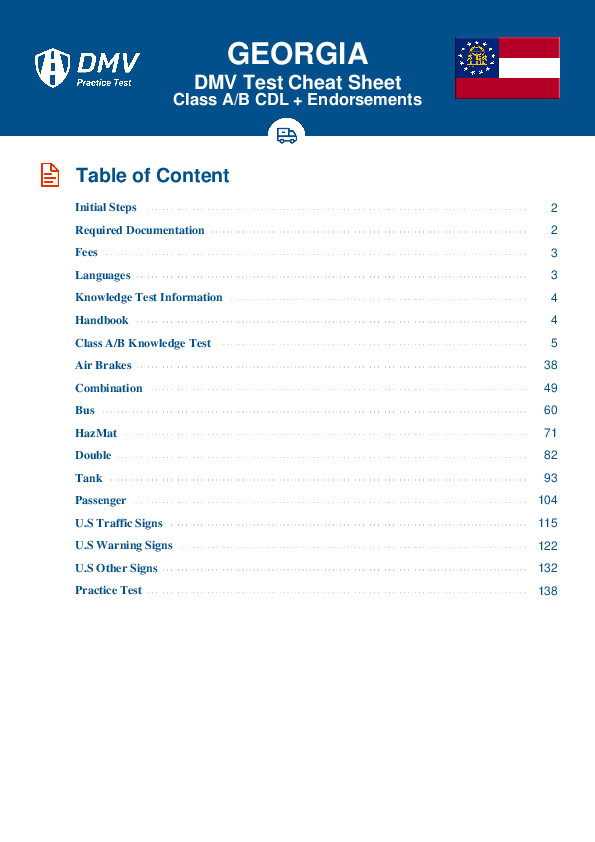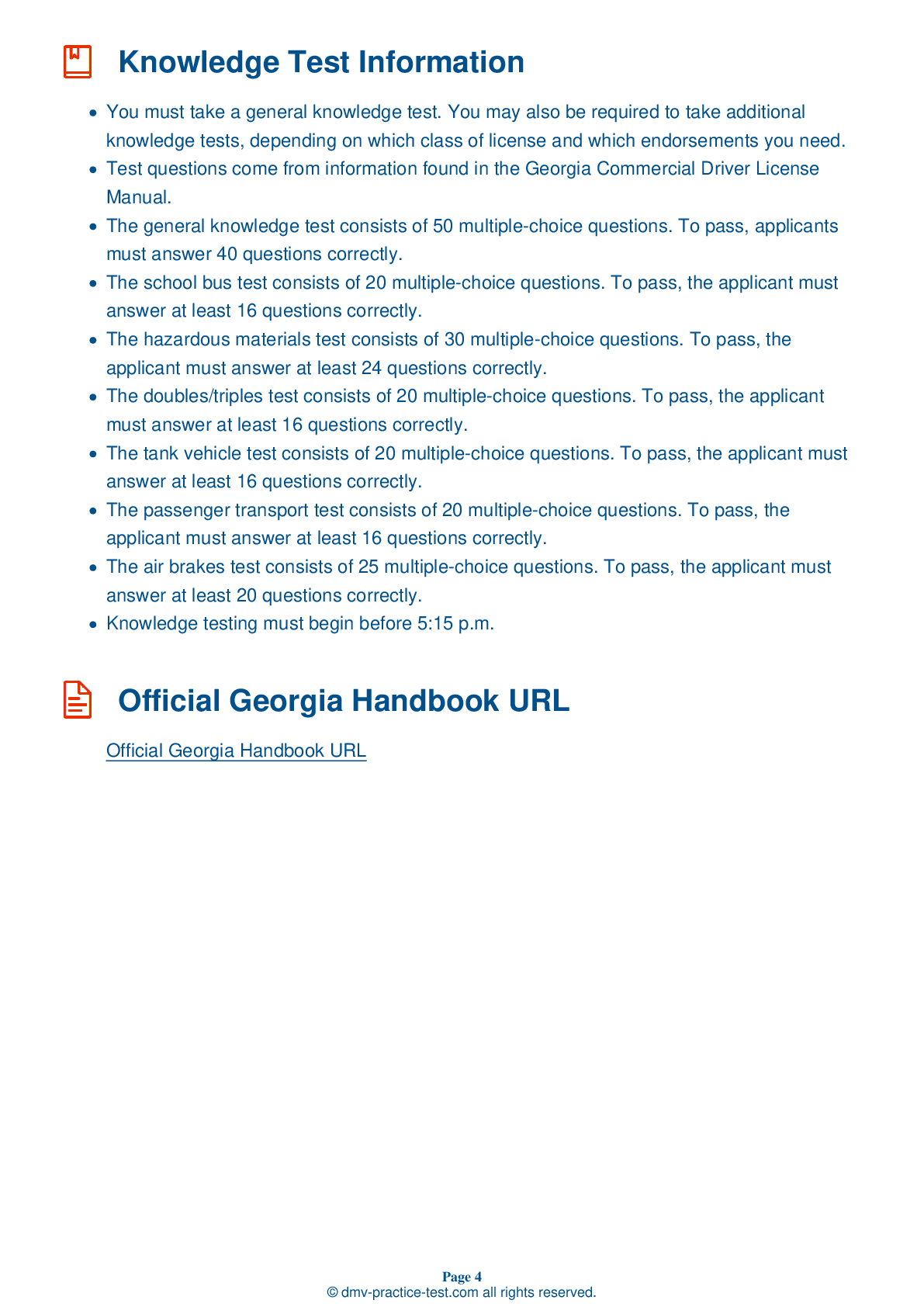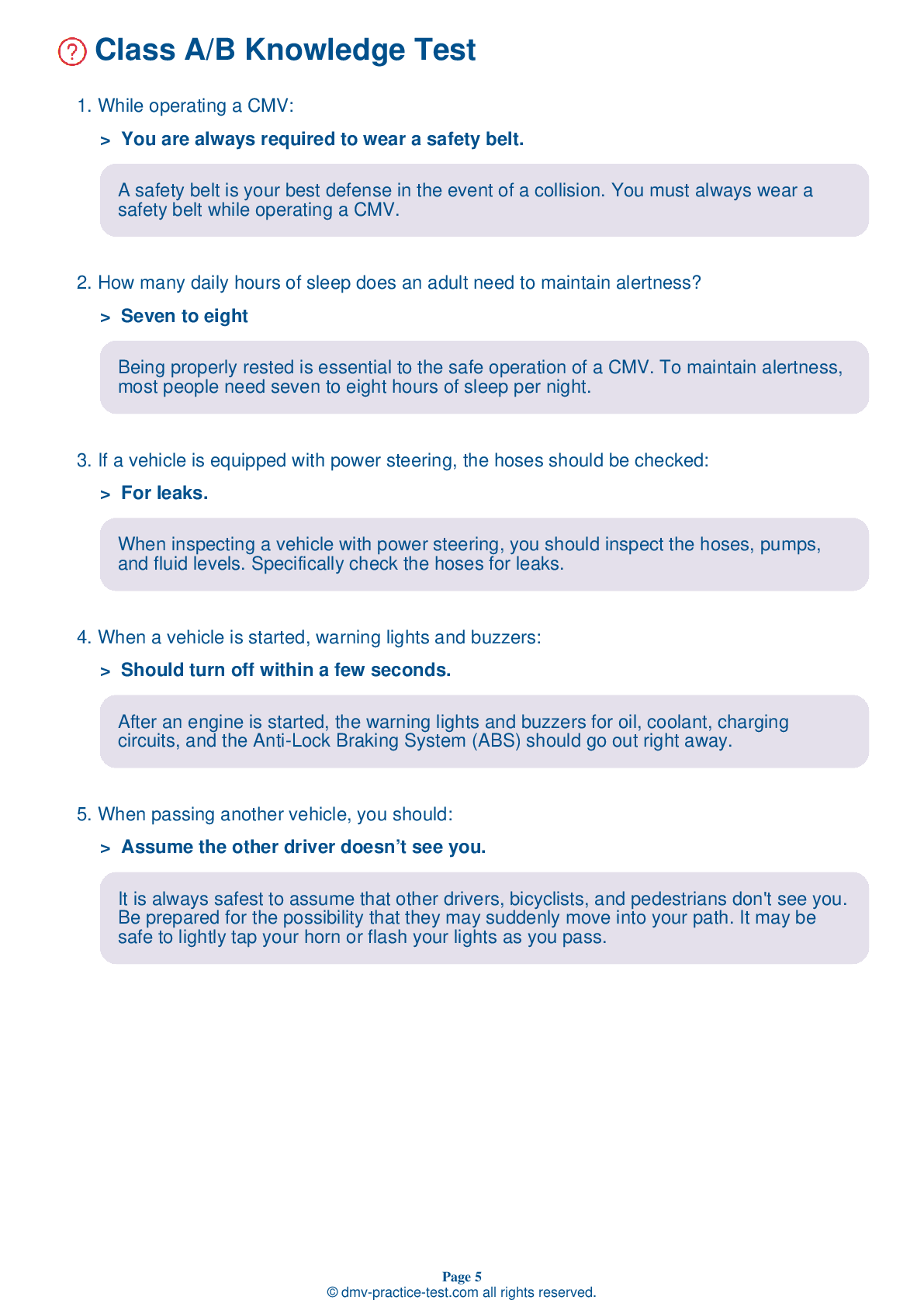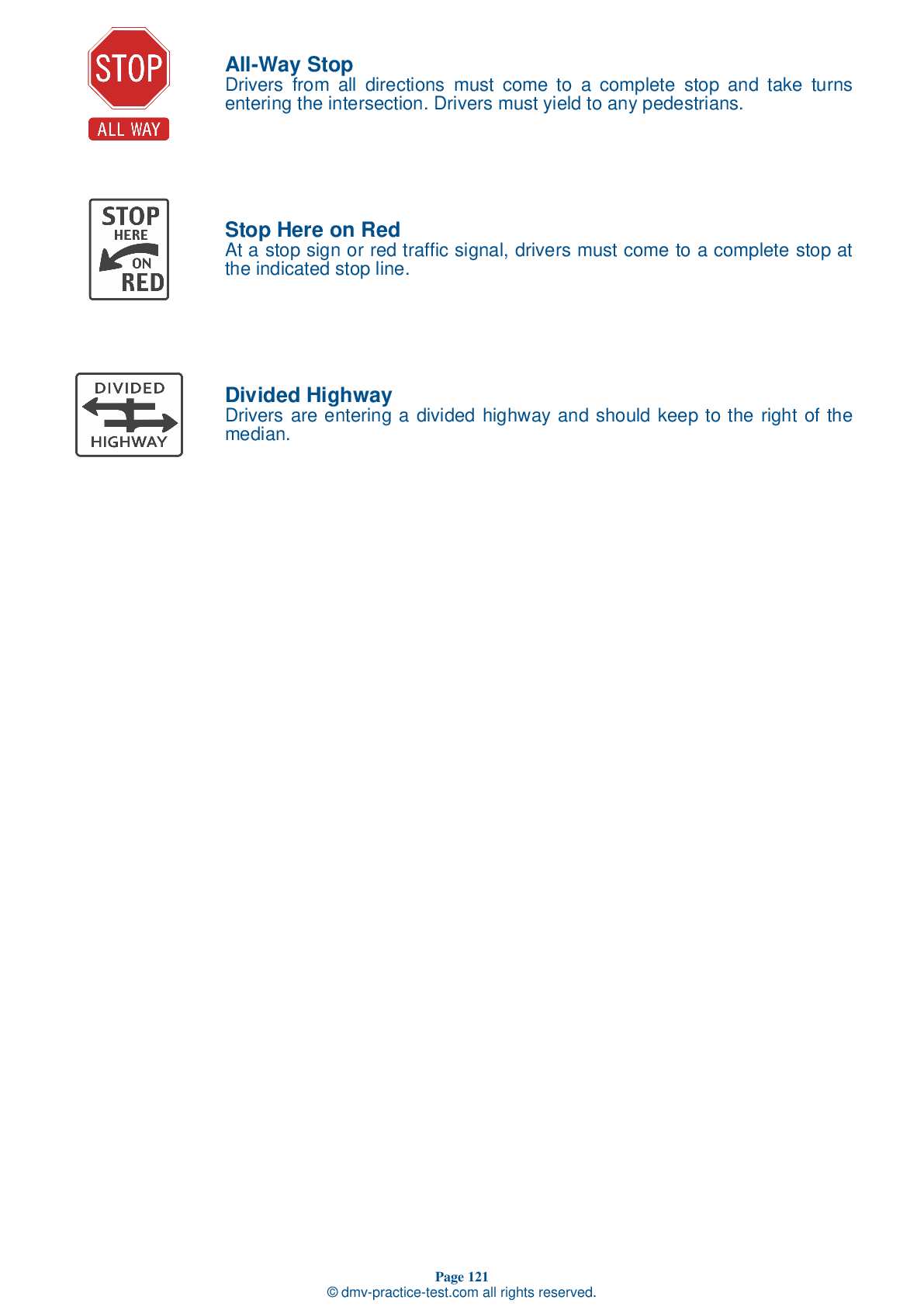Combination Vehicles Practice Test | Georgia 2026 #2 Page 2 of 3
Train for FREE online with our Georgia CDL combination vehicle test. The official exam test consists of several obligatory parts, with all of them checking your knowledge of different blocks of road rules. If you need to obtain a GA combination license in 2026, practice as much as possible. Free sample tests published on our website will help you check and improve your knowledge and boost your grades. Please bear in mind that DMV requirements for issuing a combination license may vary from state to state.
8 . The service air line is attached to the:
The service air line carries air and is controlled by either the foot brake or trailer hand brake. The service air line is attached to relay valves, which allow the trailer brakes to be applied quickly.
9 . In a double or triple combination:
When positioning trailers in a combination, the most heavily-loaded trailer should be the closest to the tractor. The lightest trailer should be positioned in the rear.
10 . When glad hands are coupled, the seals should be pressed together at an angle of:
When coupling, be sure to couple the proper glad hands. When glad hands are connected, the seals should be pressed together at a 90-degree angle.
11 . Rollovers are most likely to happen when:
Rollovers happen when an operator turns too fast. Drivers should be sure to slow down before entering turns and curves, especially when transporting a fully-loaded rig.
12 . Trailers with low underneath clearance may be difficult to drive:
Railroad-highway crossings may be difficult to cross when pulling a trailer with a low underneath clearance. In particular, both low-slung units and single-axle tractors pulling long trailers are especially challenging to drive over raised crossings.
13 . Pull out the trailer air supply control to test:
Be sure to test the trailer emergency brakes before beginning a trip. After ensuring that the trailer rolls freely, you can test the emergency brakes by pulling out the trailer air supply control, or placing it in the "emergency" position. Pull forward slightly with the tractor and make sure the trailer does not move.
14 . Compared to other commercial motor vehicles, combination vehicles need more space on the road because they are longer and they:
Combination vehicles need more space on the road than other commercial vehicles because they are longer and need more space to turn and stop. It is especially important to properly manage space when you are operating a combination vehicle.
See the exact questions that will be on the 2026 Georgia DMV exam.
99.2% of people who use the cheat sheet pass the FIRST TIME
Lillian MCcranie explains how our CDL study guide was helpful in passing the exam and recommends it to everyone.
Cameron tells us how he purchased the CDL exam, and found it to be a useful tool which helped him pass the exam and find a job.



